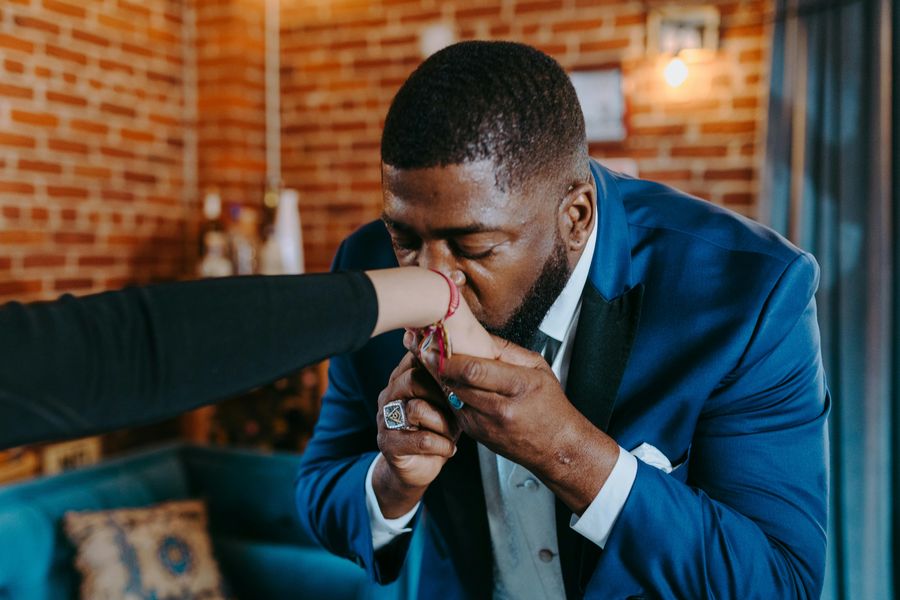Wealth and Relationships: How to Navigate Imbalances
It’s often said that money can’t buy happiness, but it certainly has a significant impact on our relationships. Financial resources, income levels, and the role of resources all play a significant role in how we view ourselves and our partners, and can create both harmony and discord in our relationships.
In this article, we’ll explore some of the practical concerns and emotional dynamics that arise when there’s a wealth imbalance between partners. Whether you are the more financially affluent partner or the one who is struggling to make ends meet, it’s important to acknowledge and work through these issues in order to maintain a healthy and fulfilling relationship.
Equality in Wealth – Balancing Financial Resources
One of the key starting points for any relationship is to establish an equitable agreement regarding financial resources. This can mean sharing expenses equally, setting up separate accounts, or finding a middle ground that works for both partners.
It’s important to approach discussions about finances with a mindset of equality, mutual respect, and collaboration. Remember, your financial situation is not a reflection of your self-worth, and neither is that of your partner.
Being open and honest about your financial situation can help to establish a foundation of trust and transparency in your relationship.
Masculine/Feminine Dynamics – Navigating Courtship
In our culture, there are often certain expectations and gender roles that we associate with courtship and relationships.
Masculine energy is often associated with being the provider, while feminine energy is associated with receiving provision. However, it’s important to recognize that these dynamics can be fluid and vary from person to person.
Some men may prefer to be the main provider, while others may prefer to share that responsibility with their partner. The same goes for women.
It’s important to communicate openly with your partner about your expectations and preferences when it comes to finances. Remember, there’s no one-size-fits-all approach to relationships.
It’s up to you and your partner to determine what works best for your unique situation.
The Role of Resources – Balancing Time, Emotions, and Possessions
While money is certainly an important aspect of relationships, it’s not the only resource that matters.
Time, emotional energy, and physical possessions also play a key role in how we relate to our partners. When there’s a wealth imbalance in a relationship, it’s important to be mindful of how these other resources are being distributed.
Is one partner putting in more emotional labor than the other? Is one partner consistently sacrificing their time and energy for the benefit of the other?
These are important questions to consider and discuss as a couple. Remember, a healthy relationship is based on mutual respect and reciprocity.
No one should be consistently giving more than they are receiving.
Avoiding Disrespect and Competition – Navigating Rejection, Gift Giving, and Provider Roles
We’ve all heard stories of relationships falling apart due to financial conflicts.
Whether it’s a partner being rejected for not having enough money, or a breadwinner feeling undervalued and unappreciated, wealth imbalances can create a sense of disrespect and competition between partners.
One way to avoid these negative dynamics is to shift the focus away from financial status and towards the qualities that make a relationship strong.
Instead of placing emphasis on money and possessions, focus on qualities like kindness, humor, and communication. Additionally, it’s important to approach gift-giving and provider roles with a sense of humility and generosity.
Don’t give gifts or take on provider roles with the expectation of receiving something in return, but rather as an expression of your love and appreciation for your partner.
Practical Concerns in Wealth Imbalance – Finding Mutual Agreement
Despite our best efforts, wealth imbalances can still create problems in our relationships. Shame, lackful thoughts, disappointment, and radiating lack are all emotions that can arise when one partner has more resources than the other.
It’s important to address these feelings and work through them as a couple. Creating a mutual agreement regarding finances, possessions, and emotional resources can help to establish a sense of stability and trust in your relationship.
Remember, every relationship is different, and there’s no one-size-fits-all solution to wealth imbalances. It’s up to you and your partner to determine what works best for your unique situation.
By communicating openly, establishing mutual respect, and working through practical concerns, you can navigate wealth imbalances and maintain a healthy and fulfilling relationship.
Gender, Attractiveness, and Roles: Navigating Relationships with Grace
Gender, attractiveness, and roles all play a significant role in our relationships.
Physical attractiveness, beauty standards, intelligence, and gender roles are all factors that can impact our relationships positively or negatively.
In this expansion, we’ll explore these topics in more detail to help you navigate your relationships with grace.
Symmetry and Beauty Standards – Understanding Physical Attractiveness
One of the most significant aspects of beauty standards is physical attractiveness. Physical appearance often influences our first impressions of one another, creating both positive and negative reactions.
The golden ratio is often used to define perfection in a person’s appearance. However, it’s essential to understand that beauty standards vary widely from culture to culture and from person to person.
To nurture a healthy relationship, it’s important to accept appearances for what they are and to appreciate beauty in its many forms. Physical appearance is just one aspect of a person’s character and should not be the defining factor in any relationship.
Acceptance of Appearance – Embracing Your Beauty
When we feel good about our appearance, we radiate confidence and attract people to us. Embracing your beauty is a fundamental step in building a healthy relationship with yourself and others.
It’s important to remember that beauty is subjective and comes in many different forms. Removing the pressure to conform to societal beauty standards can help you to appreciate the unique beauty that you possess.
Emphasis on self-care and self-love are key ingredients in the recipe for a fulfilling romantic relationship.
Intelligence and Relationship Needs – Nurturing Relationships Beyond Good Looks
Intelligence is an essential aspect of any relationship. We all have different priorities when it comes to what we find attractive in a partner.
However, we mustn’t overlook the importance of intelligence in building a healthy and fulfilling relationship.
While many of us may dream of the genius, rocket-scientist brain surgeon husband, it’s essential to recognize that intelligence comes in many forms.
Emotional intelligence, creativity, and intellectual curiosity are all traits that can elevate any relationship, creating a deeper and more meaningful connection between partners.
Feminine/Masculine Roles – Balancing the Yin and Yang of Relationships
Balancing feminine and masculine roles is vital in any relationship.
These dynamics can vary widely from person to person, altering the typical expectations regarding couples. It’s important to cultivate understanding and communication to strike a balance that works best for both partners.
Feminine Partner’s Behavior – Providing, Respect, Exclusivity, Sensuality, and Reciprocity
Feminine behavior can take on many different forms. In a relationship, a feminine partner may strive to provide care, support, and comfort for her partner.
Respect and exclusivity are two key aspects of any relationship. Sensuality is also an integral part of any healthy romantic relationship, involving a balance of giving and receiving.
In addition, reciprocity is vital in any relationship, ensuring that both partners feel valued and appreciated.
Masculine Partner’s Behavior – Cherishing and Courtship
In traditional gender roles, a masculine partner may cherish and court his partner, demonstrating his love and appreciation through acts of kindness, gifts, and special outings.
In any modern relationship, both partners should focus on cherishing each other and treating each other with kindness, respect, and understanding. Courtship should be more about celebrating the relationship and deepening intimacy than adhering to societal expectations of gender roles.
Avoiding Competing – Drawing Attention, Financial Expenditures, and Bringing Up Topics
Avoiding competition and cultivating mutual respect within a relationship are essential to nurturing a long and healthy relationship. When partners feel the need to compete with each other and draw attention away from the relationship, it can harm the intimacy and depth of the union.
Similarly, when one partner continually overspends, or brings up irrelevant topics, it can create tension and unease in the relationship.
In conclusion, gender, attractiveness, and roles all impact our relationships in significant ways.
By embracing our unique beauty, accepting and nurturing intelligence, and balancing the yin and the yang in our relationships, we can create a more fulfilling and sustainable romantic partnership.
The key is understanding one another and working together to nurture what makes each of us special and to create space within the relationship for each partner to be valued and appreciated.
Individual Agency and Resources: Navigating Autonomy and Personal Contributions in Relationships
Individual agency and resources play a significant role in our romantic relationships.
We all have unique needs, desires, and dreams that shape our behavior and contribute to the attraction that we feel towards our partners.
In this expansion, we’ll explore the concepts of autonomy in wealth, personal contributions, and the role of resources in relationships in more detail to help you navigate your relationships more effectively.
Autonomy in Wealth – Embracing the Freedom to Make Choices
When it comes to wealth, it’s essential to embrace the freedom to make choices. Financial autonomy allows you to pursue your dreams and create opportunities that may not be possible otherwise.
For example, If you want to go on a once-in-a-lifetime vacation to Fiji, having the financial resources to do so is crucial.
In a relationship, autonomy is also crucial. Each partner should have the freedom to make choices regarding their financial situation.
This freedom extends to personal choices, such as career paths, hobbies, and leisure activities.
Personal Contributions – Tangible and Intangible Ways of Giving
In any relationship, partners contribute in both tangible and intangible ways. Tangible contributions include things like financial support, household chores, and child-rearing.
Intangible contributions, on the other hand, include things like access to sensuality, appreciation, respect, and exclusivity. These intangibles are all essential, contributing factors to a healthy and fulfilling relationship.
When both partners feel valued and appreciated for their contributions, it helps to create a sense of balance and harmony in the relationship. It’s important to recognize and acknowledge each other’s contributions in both tangible and intangible ways to maintain the health of the relationship.
Resources as Not the Main Factor – The Role of Objective Attraction
While resources are important, they shouldn’t be the main factor in attraction and relationships. Objective attraction often includes worldly possessions, physical attractiveness, and personal characteristics that are not affected by wealth.
When partners focus solely on worldly possessions and financial resources, it can harm the potential for a healthy relationship. Instead, objective attraction should be a balance of factors that includes both tangible and intangible contributions.
This is especially necessary when both partners are in vastly different financial circumstances.
In conclusion, individual agency and resources are essential to any meaningful and fulfilling relationship.
It’s crucial to balance relationships by allowing personal autonomy in wealth, acknowledging personal contributions in both tangible and intangible ways, and viewing resources as not the main factor in attraction.
These steps can help couples build a stronger and more sustainable future together.
By embracing each other’s uniqueness, focusing on personal contributions, and nurturing the connection between partners, it’s possible to create a relationship that is satisfying for both partners.
In conclusion, romance can be a complex and challenging terrain, but it’s important to recognize that there are steps that couples can take to nurture healthy and fulfilling relationships.
The articles above highlight several key themes that arise in dating and romantic relationships, including wealth imbalances, gender roles, attractiveness, agency, and resources.
By discussing these concepts in more detail and exploring practical solutions to the challenges they present, it’s possible to create relationships that are balanced, respectful, and loving.
Whether couples are navigating issues of wealth inequality or working to balance traditional gender roles in a modern world, it’s possible to create relationships that bring people joy, love, and happiness.
By communicating honestly, respecting each other’s unique personalities and contributions to the relationship, and cultivating deep connections through shared values and experiences, couples can create a strong foundation for a long-lasting and fulfilling romantic partnership.



